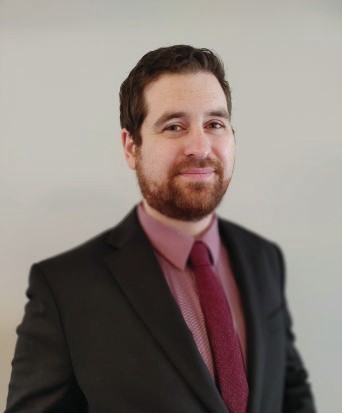Reaching Retirement
Financial considerations for the 2SLGBTQIA+ community
By Bryan Hansen

Planning for retirement can be daunting for anyone, but there are specific considerations that members of the 2SLGBTQIA+ community should keep in mind. Paul Hoar, an investment advisor at RBC Wealth Management, offers insights on some of the key things to consider when planning for retirement.
Firstly, Hoar notes that the legalization of same-sex marriage has removed many of the barriers that previously made retirement planning more difficult for the 2SLGBTQIA+ community. Survivors had to be legally married to the deceased pension holder to carry on the benefit, which was previously not possible for same-sex partners. However, with the legalization of same-sex marriages, samesex common-law partners now have the same rights as opposite-sex common-law partners. “I’m proud to live in a country where everyone is viewed equal, but there’s plenty of growth for 2SLGBTQIA+ to go,” Hoar says.
Hoar stresses the importance of starting retirement planning as early as possible. “The earlier the better. Your future self will thank you as time is on your side and will allow your money to compound further,” he explains. “However, that’s easier said than done, and everyone’s situation is different. Others’ priorities may be paying off student loans, caring for family, saving for a house down payment or even just running a vehicle.”
While it may be difficult to prioritize saving when there are other financial priorities, creating different accounts for each goal can help. For example, a day-to-day savings account could be used for a vehicle purchase, a First Home Savings Account (FHSA) for a house down payment and a Registered Retirement Savings Plan (RRSP) for retirement.
But what if you have limited funds to save? Hoar says that a fantastic way to get started, regardless of the amount, is to “make saving a habit and make it automatic.” Automations in your banking system can be incredibly simple to initiate, and they pay off in the long term. Setting up pre-authorized contributions can help make saving a regular part of your financial routine every month, if not every week. Even a small amount of money can add up over time, especially when invested properly. “Ideally, [you should invest] the same day you receive income so that it’s money in, money out, with less temptation to spend,” Hoar says. “There will come a day when that $50/month [can be increased to] $500/month, and you’ll be perfectly positioned to do so given you’ve ingrained the habit of saving.”
When it comes to lifestyle factors that can affect retirement planning, Hoar says, “It’s important to consider what you want your retirement to look like. Do you want retirement to be extravagant with annual trips to the Caribbean? If so, you’ll have to ensure it’s within the budget to do so.”
As you age, different stages of retirement require varying levels of financial support. In the “Go-Go” phase, you may want to travel and be as active as possible. In the “Slow-Go” phase, you may still be adventurous but not as active. And in the “No-Go” phase, you may not be travelling as much or at all. “It’s worth considering [that] as we age, healthcare costs will have to be [of] increased importance to our budget,” he says. “All the reason why planning early and regularly is important.”
Hoar also suggests that members of the 2SLGBTQIA+ community should consider the potential impact of discrimination on their retirement planning. Discrimination can result in lower income, fewer job opportunities and limited access to health care, all of which can affect retirement savings and quality of life. It’s important to consider these factors when creating a retirement plan and to seek out resources and support if needed.
Another consideration is the potential impact a same-sex relationship can have on retirement planning. For example, same-sex partners may not have the same access to spousal benefits, such as survivor benefits or health-care coverage. It’s important to understand your rights and options in these situations and plan accordingly.
Finally, Hoar emphasizes the importance of seeking out professional financial advice when planning for retirement. An experienced advisor can help you understand your options and create a plan that meets your individual needs and goals. They can also provide guidance on tax strategies, estate planning and other important considerations.
Overall, retirement planning can be complex, but by starting early, creating a comprehensive plan and seeking out professional advice, members of the 2SLGBTQIA+ community can ensure that they are prepared for this next stage of life and are able to enjoy it to the fullest. “Above all else, retirement is to be enjoyed,” concludes Hoar. “The key to a happy retirement is to be active, be social and live life to the fullest as you enjoy this next stage of your life.” ■

“ The key to a happy retirement is to be active, be social and live life to the fullest as you enjoy this next stage of your life. ”
-PAUL HOAR